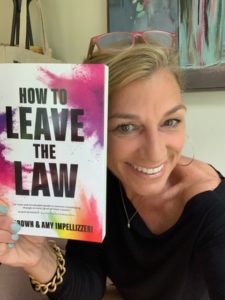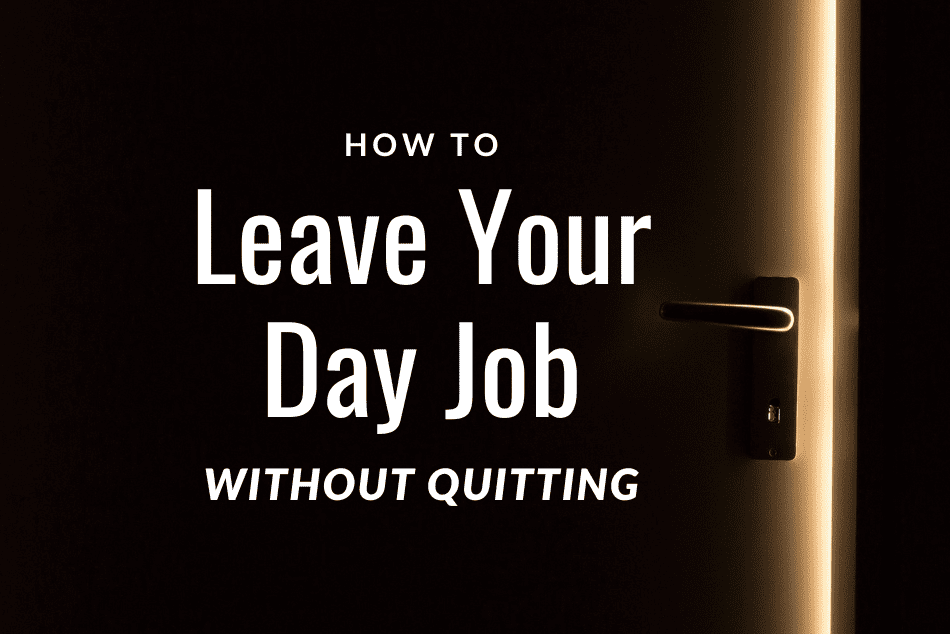by Amy Impellizzeri
Recently, I was invited by my pre-law alma mater, Dickinson College, to join College President John Jones in a panel discussion: Just two ex-lawyers talking about not being lawyers anymore. President Jones is a Dickinson alum with an innovative vision for the college’s future, and we’ve talked over the years about how much our liberal arts education plus legal training prepared us for our new career chapters. The irony is that back then, I had only one life goal: to practice law. After I left Dickinson, I went to law school, joined the biggest law firm in the country …
and found my way to a writing career.
My seventh and eighth books were released this past year: the first in a legal drama series (IN HER DEFENSE) and a new nonfiction title called HOW TO LEAVE THE LAW.
I was a lawyer for about 15 years, and to be perfectly honest, I loved it until I didn’t. When I decided to take a one-year sabbatical, it was a first step toward a new chapter I was only just starting to formulate in my brain. I didn’t have the words for what I wanted next, but that changed after I attended a luncheon with a group of fellow associates headed off on sabbatical.
In a posh dining room in the Times Square office building, a veteran partner stood and addressed our group to wish us well and to forecast the future: “You’ll be back. And here’s why. The most interesting and the most talented people you’re ever going to meet are right here in this building. See you in a year.” I realized then that what I really wanted to do was prove him wrong.
Everyone I tell that story to laughs at the self-righteousness of that partner’s toast. But I’ve realized many of us who are considering a career transition—especially to a career in the arts—are trapped in that same mythical way of thinking. Whatever we’re doing now is so much better, safer, smarter, more responsible (and on and on), than the path less traveled.
But really, how responsible is it to completely stifle your creative self?
At legal and writing conferences across the country, I meet many creative people who have long denied that side of themselves, who come to me bitter and burned out. I just want to quit and write a book. Like you did.
No, I caution them. That’s not what I did.
You Can Take It With You
As I’ve transitioned gradually from lawyer to writer, I’ve worked hard to learn as much as I could about the art and the business of writing. My legal training has helped me on both tracks as I refine my craft and advocate for myself in this competitive industry. I have also developed strategies to subsidize my creative projects through start-up work, academia, and nonprofit work, all of which has been made possible in large part by my legal training and background.
Being a lawyer, it turns out, is something I’ve very much brought into this chapter of my life.
I may not practice law anymore, but I haven’t quit a thing.
Looking for the Exits
Interestingly, I have found that many of us, when faced with choices in the professional world, are much more comfortable giving up our creative voices than trying to find ways to cultivate them alongside other work. But the sacrifice and trade-off doesn’t feel good. In many cases, it leads to that same burnout that forces us out of our seemingly comfortable professional choices prematurely, or without clear exit plans, and without being able to articulate what we want next. Denying our creative pursuits and our passions, it seems, can be bad for us—but so is pursuing them blindly.
I counsel professionals to start by thinking of themselves as “transitioning”—the process of leaving can and often should be a gradual slope rather than a leap off the edge into the abyss.
My advice often boils down to this: Don’t quit your day job to write just yet. If you aren’t already, begin by carving out small pockets of time to write. I often start writing workshops with 15 minutes of free writing, so my students can see how much creativity can flow in just small moments of time when we make the space. Writing on the side of other paid work can give you the freedom to find your creative stride with fewer risks—and a more level head.
Cultivating your creative soul alongside other work can also have the beneficial result of making your “day job” less onerous and more fulfilling. Perhaps, with the clarity and self-awareness you achieve by cultivating your whole self (including your creative side!) you’ll decide to make a career transition or continue writing on the side of your current career.
You may leave anyway. Or you may decide you really can have it both ways.
Either way, remember: Don’t quit on yourself.
 Amy Impellizzeri is a reformed corporate litigator, former start-up executive, award-winning author, Tall Poppy Writer, past president of the Women’s Fiction Writers Association, and host of the Speak Studio podcast, I KNOW HOW THIS (BOOK) ENDS. Kirkus Reviews (in a Starred Review) called her latest novel, IN HER DEFENSE “crackling courtroom drama.” She is also the author of Lawyer Interrupted (published by the American Bar Association) and co-author of How to Leave the Law, featured in Bloomberg Law, Boston Business Journal and more.
Amy Impellizzeri is a reformed corporate litigator, former start-up executive, award-winning author, Tall Poppy Writer, past president of the Women’s Fiction Writers Association, and host of the Speak Studio podcast, I KNOW HOW THIS (BOOK) ENDS. Kirkus Reviews (in a Starred Review) called her latest novel, IN HER DEFENSE “crackling courtroom drama.” She is also the author of Lawyer Interrupted (published by the American Bar Association) and co-author of How to Leave the Law, featured in Bloomberg Law, Boston Business Journal and more.





